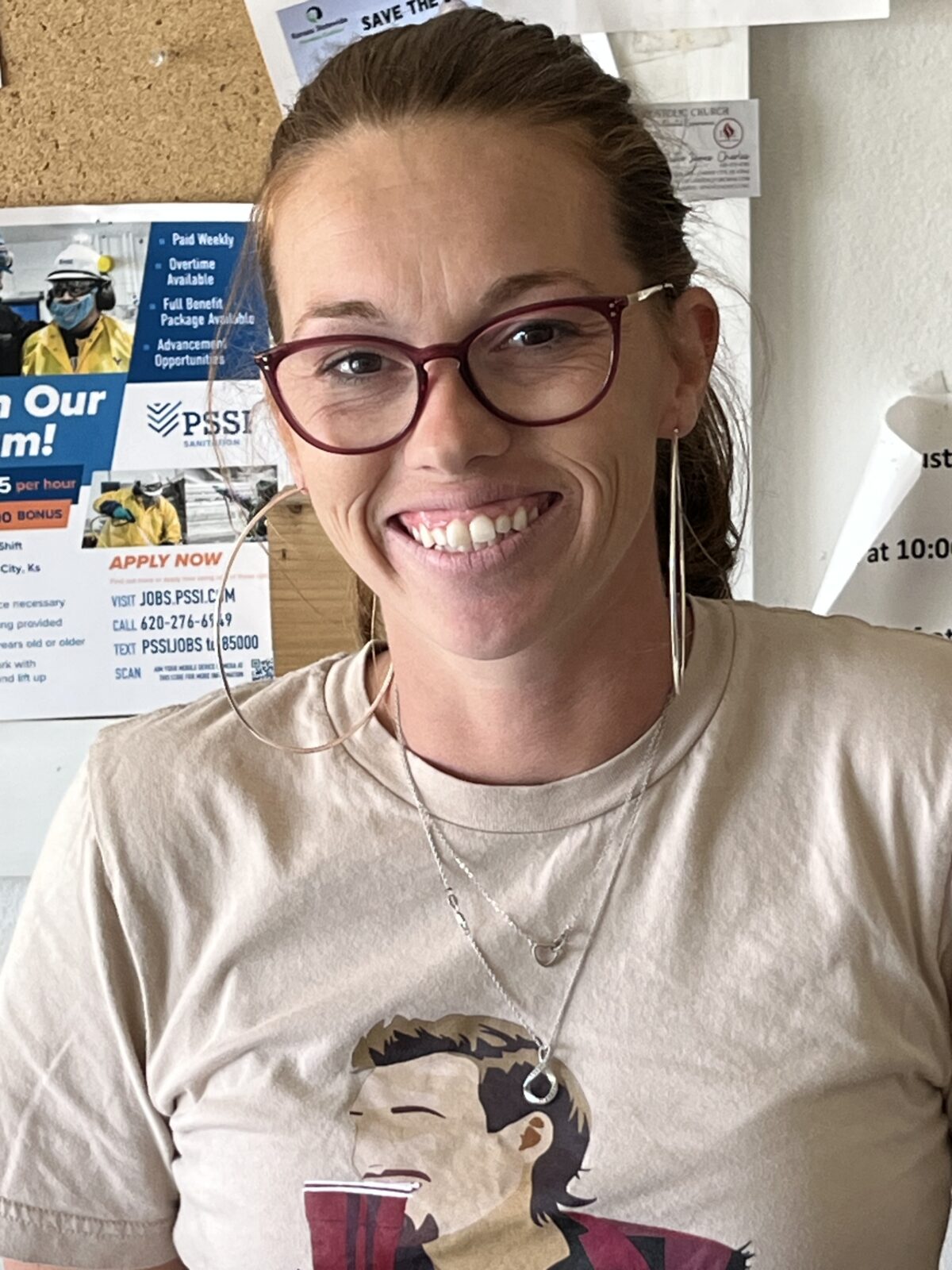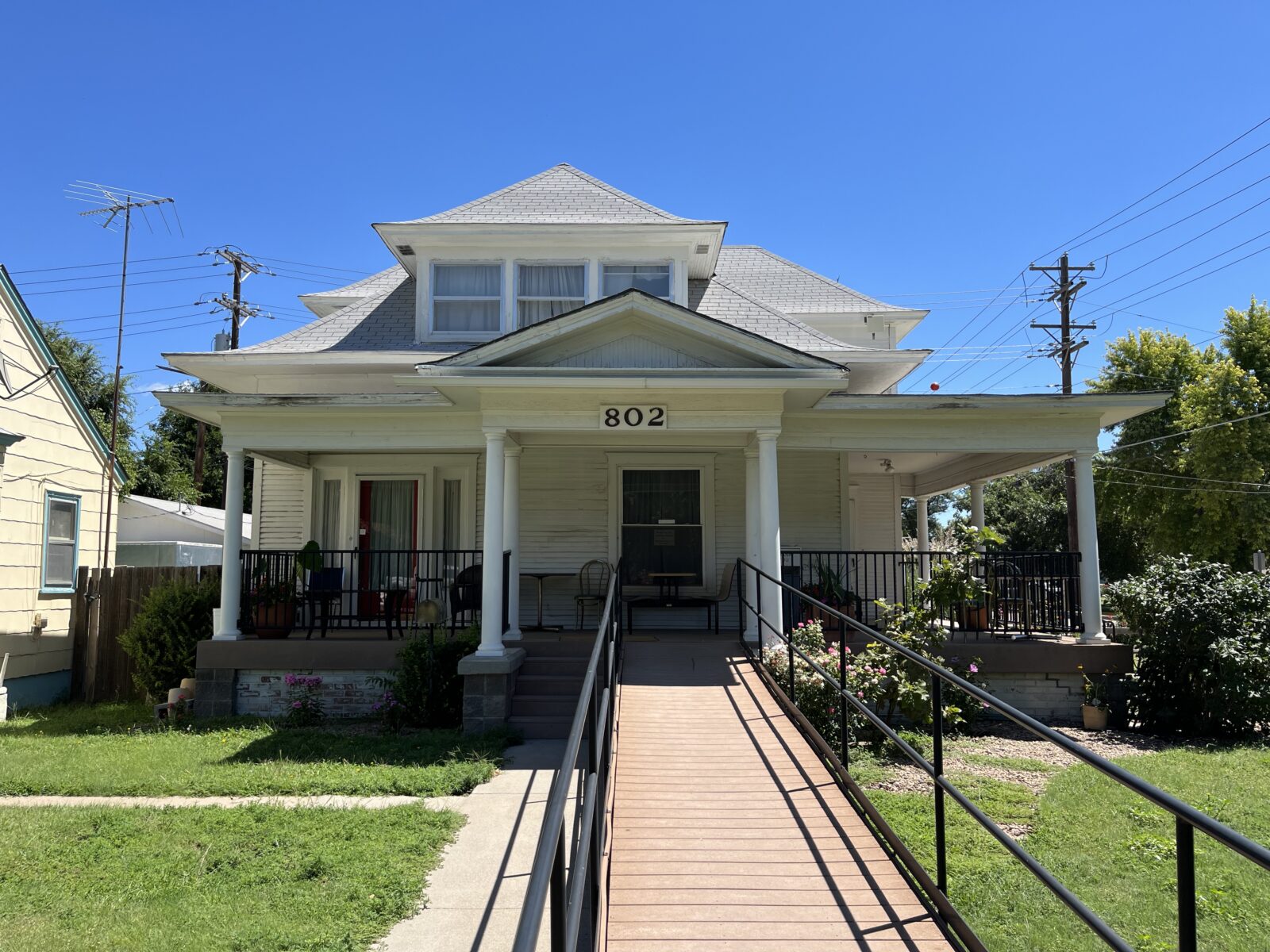Garden City, Kansas, got its name when a visitor admired a local flower garden. It’s on the Arkansas River and in the middle of an agricultural area known for alfalfa and other crops, supplemented by industries that include meatpacking, food processing, machine shops, and the manufacture of brick and tile.
Garden City (population 28,000) has employment for capable hands and sober heads. Emmaus House, a homeless shelter in town with room for 29 people, displays two hopeful signs: “Jobs available at $19.25/hour,” and “All I need today is a little bit of coffee and a lot of Jesus.”
The Emmaus reference is to chapter 24 of the Gospel according to Luke: He writes about two men heading to a village seven miles from Jerusalem and getting a lesson from the risen Jesus. Emmaus House often has a “big old prayer group on the front porch,” according to the woman in charge, Brittney Knoll, 33, who wears enormous hoop earrings and has a big legacy to maintain.
Twenty-five years ago Knoll hung around the kitchen of Emmaus House until the cook let her be an assistant. Knoll learned that the homeless shelter needed a director. When her mom said she could invite one person to her eighth birthday dinner, Knoll invited not a buddy but the woman responsible for hiring — and Knoll’s mom soon had a job that she stayed in for 21 years. That’s when Knoll took over.

Knoll looked around the Emmaus living room and said, “I grew up in this house.” She’s married now and spends her nights at home several miles away, but by day she runs Emmaus — and she means business. When Knoll tells residents they must abide by the rules, some call her names I won’t print here, but “99% of the time they will obey. They know they’re at rock bottom. They want a hot meal.”
Residents live in two men’s dorm rooms, a women’s dorm, and two family rooms. They stay for up to nine months and agree to follow sixteen rules, including “must apply for four jobs each day Monday through Friday. [Must] bath daily, clean your room, take out trash daily, make your beds every morning…. No Drugs or Alcohol allowed…. All residents are subject to random drug testing…. NO smoking in the shelter, or on the porch…. No bad language, harassment towards staff or other houseguests.”
The rules are strict but the approach is folksy, with what Knolls says are “a lot of Pasta style foods. Pasta seems to last longer in the stomach, especially for someone who may not eat again for several days…. The meals are served in our dining room, in a family style setting. Our staff and volunteers are encouraged to join the guests during the meal. We find that it lifts their spirits and you get to know some of the people who are trying to start over again and others who are just passing through. Sometimes all they need is a Christian brother or sister to listen! “
Breakfast is at seven, lunch at noon, supper at six: “If you are not in house five minutes before meal is served you will not eat.” Knoll uses “exit” as a forceful verb: “If you are intoxicated or high you will be exited out of the house.” Her job, Knoll said, “is hard on heart and body,” but she took over from her mom in 2019 because she “knew where God wanted me to be.”
Knoll also runs a food pantry that passes out food from Feeding America and the Kansas Food Bank to 128 registered families. Her burden increases from October 15 through April 30, the months Emmaus House offers winter sheltering services. Any adult in need can receive dinner and breakfast, a safe place to sleep, storage space for personal belongings, phone and mail service, access to showers and laundry facilities, and meetings with case managers.
Residents pay $5 per day for their room and board, if they are working or receiving disability payments. Knoll speaks around Garden City in churches, at realtors’ luncheons, almost anywhere she can. She says Emmaus takes no government money because Washington “wants equal opportunity for sex offenders, and we’re supposed to supply clean needles. We don’t do that because it’s enabling what’s wrong…. Instead, we pray at meals, guide people to churches, and hope to bring people to Christ.”

